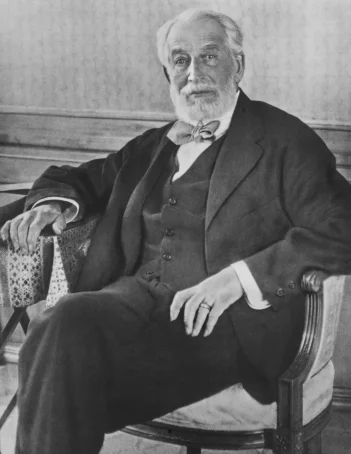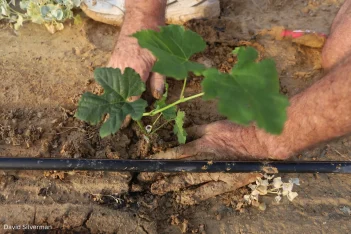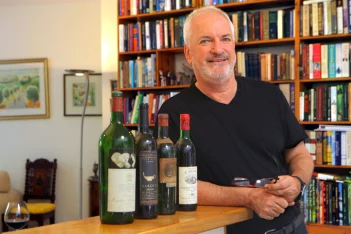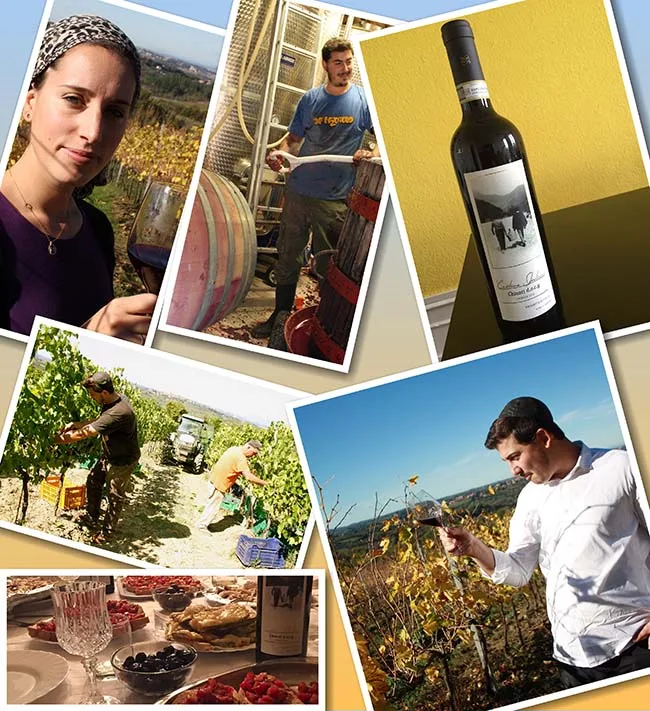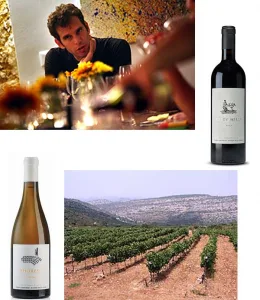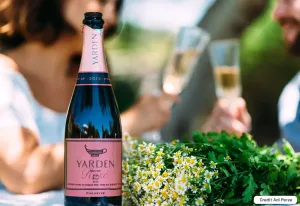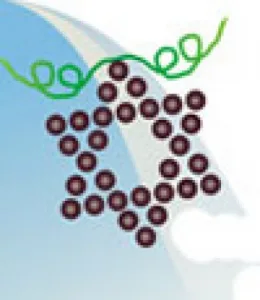Throughout history, Jews have made wine at home out of necessity. They needed wine so they could sanctify festivals and the Sabbath. Jewish and kosher wine was really a cottage industry throughout the ages. Wine was made in buckets and bathtubs, or any receptacle that was available, from anything from local table grapes to raisins.
In the 20th century kosher wine became big business, as did Kashrut supervision. Manischevitz, Kedem and Mogen Dovid in America, Palwin in Britain and Carmel from Israel became large brands which gained loyalty and a following from Jews wanting to make Kiddush and say the blessings, wherever they were.
In the 1960’s Carmel introduced the concept of dry kosher table wines and in the 1980’s Hagafen and Herzog from California and the Golan Heights Winery continued the development, with the objective of making the best quality wine possible ‘that just happened also to be kosher’. Since then, there has been a kosher revolution. Today, almost every wine producing country makes kosher wines, often in association with Royal Wine Corp., which internationalized quality kosher wine production. Furthermore kosher wines have won trophies in the most major wine tasting competitions and high scores from the leading critics, proving that the word kosher is not a bar to great wine.
Considering the developments in the last thirty years, it is particularly strange that in Europe, with all the kosher wine being produced, that Jewish owned wineries are rare and wineries owned by religious Jews are virtually non-existent. Most of the wine in Europe is made at existing non-kosher wineries, where a kosher crew is imported, a mashgiach (religious supervisor) takes control, batches are isolated under lock and key and the wine is made under strict supervision. Only recently I wrote that Terra di Seta was the only Tuscan winery dedicated 100% to kosher wines. So it gladdened my heart to find another: a promising start-up of a new winery initiative, owned by a religious Jew, also in the beautiful setting of Tuscany.
There, Eli Gauthier and his wife, Lara, have founded the winery of their dreams. Eli has French roots and his wife is from an Italian country family. They are both much travelled. Eli grew up near Paris, but has lived in California, England and Jerusalem. He even spent time as an intern in the Jerusalem Post, using is French language skills! Lara has been in Florence, Istanbul, London and Jerusalem. Yet they have settled in Tuscany. Tuscany is heaven on earth, so I can understand why!
Eli found wine almost by accident. He studied Hebrew and Israeli studies in London and decided to work for Kedem Europe in the evenings conducting tastings. Kedem is the main kosher importer and distributor in the UK, representing numerous Israeli wineries and kosher wines from all over the world. So it was a great way to enter the world of wine!
He then moved to Strasbourg and worked in a biodynamic winery, which was not kosher. There he developed his passion and sensitivity to the countryside and understood the importance of the vineyard and the idea of growing wine and not just grapes. As result of the life changing experience, he studied viticulture and winemaking in France and it was then he started to long for his own winery.
Lara’s family is Italian, with holdings in in the beautiful village of Casciona Alta in the heart of Tuscany. Now most kosher wine in Italy has been less good than the wines from Spain and France and certainly not at the standard of kosher wines from California or Israel. Eli and Lara knew an opportunity when they saw it and decided to open a winery in Tuscany. They decided on Tuscany because his wife was from there, there were family owned buildings they could use and her family had the necessary contacts in agricultural circles. It was a no brainer.
In the end, the new winery was situated in the exact place where his wife’s grandfather, Giuliano, had made wine and olive oil in years gone by. As a tribute, they named the winery Cantina Giuliano. (The word Cantina means cellar.)
It was important to Eli to make an artisanal wine in touch with nature. He loves the idea of producing what you eat and being at one with the countryside. He does not like consumerism or bulk produced wines. This world view is very much integrated with his Judaism too. Therefore, the necessary equipment was purchased to make small scale lot, hand crafted wines.
He explains: “We are not businessmen first, we are winemakers offering a product true to our region to Jews who may be tired of drinking standardized industrial and unfortunately soul less wines.”
The first wine was called Chianti Primize from the 2014 vintage. Primize refers to the first fruits or bikurim. The stylish label shows Lara’s father, Giustino, carrying a large container of wine for a picnic.
The backbone of the wine is Sangiovese, which is the main grape of Tuscany. This variety provides the aromas and acidity sought after in Tuscan wines. He added a little Merlot to give flesh and roundness, and a local variety called Ciliegiolo to provide color. He sources the fruit from vineyards on a high south-southwest facing hill, not far from the winery, near a town called Peccioli.
His raison d’être is to make an elegant wine, aromatic and good with food. I found their first effort eminently more satisfying than most of the Italian kosher wines I have tasted to date. It has good herbal and cherry notes, with a hint of ripe berries, is soft in the mouth and has a well-balanced finish. A very promising first wine, but no winery should be judged from one wine from only one vintage. It will be interesting to see how the winery develops in the coming years.
In the first year they made 12,000 bottles. There are plans to grow the winery to about 20-25,000 bottles with five different wines, including a white and a rosé.
In fact Casciano Alta is not far from Livorno, a coastal port town which bustles with energy. Eli says it ‘reminds me of Israel with a Tuscan twist.’ Of course, Livorno is the town where my family came from and Moses Montefiore was born there. It is from there that the Gauthiers are able to purchase kosher meat. Before the Second World War, a third of the total population was Jewish. Today, only a small Jewish population remains, but it is an active community, with a minyan each day.
Eli Gauthier has an easy going, friendly personality and a slightly romantic nature. However he is also not afraid of hard work and has the drive to fulfill his dreams. These days he spends six months at the winery in Tuscany and six months in Strasbourg where he studies full time in a Beit Midrash. He says making wine allows him to be close to nature and feel the divine presence around him. Wine is a combination of nature and the human religious supervision. In short his winemaking reinforces his Judaism and vice versa.
He loves to cook and has the same passion for food that he has for wine. He is working on a tasting room with a small kitchen to offer kosher Tuscan food made from vegetables they have grown in their orchards and their own olive oil. It sounds like it will be a must visit venue.
I was interested to know the style of wines he likes. He told me his preference is for white wines from Alsace and crus Beaujolais reds. As far as Israel is concerned, he likes Domaine Netofa because of their focus on Mediterranean varieties and finesse. He also admires the way Tzora Vineyards make elegant wines from the classic European varieties. Best of all is Capcanes, from the Monsant region of Spain, especially the Flor de Flor.
Eli and Lara would like to illustrate that it is possible to be religious, be a good Jew, work with nature and avoid the rat race. Theirs is a story of wine, vineyards, nature and Judaism. They are making dreams come true under the Tuscan sun.
Adam Montefiore works for Carmel Winery and regularly writes about wine for both Israeli and international publications.












